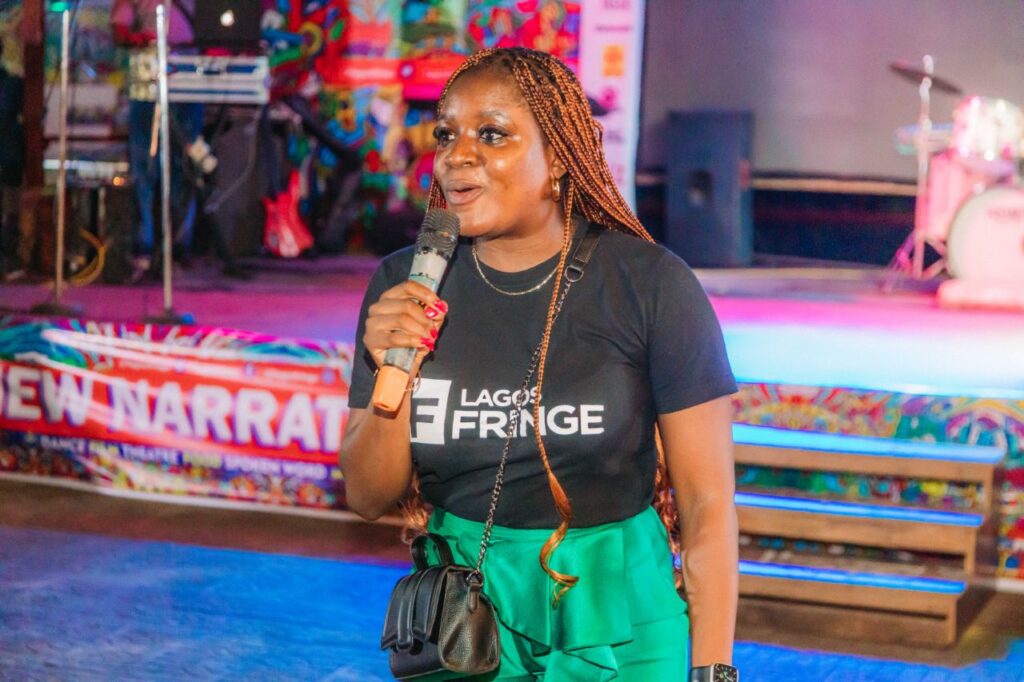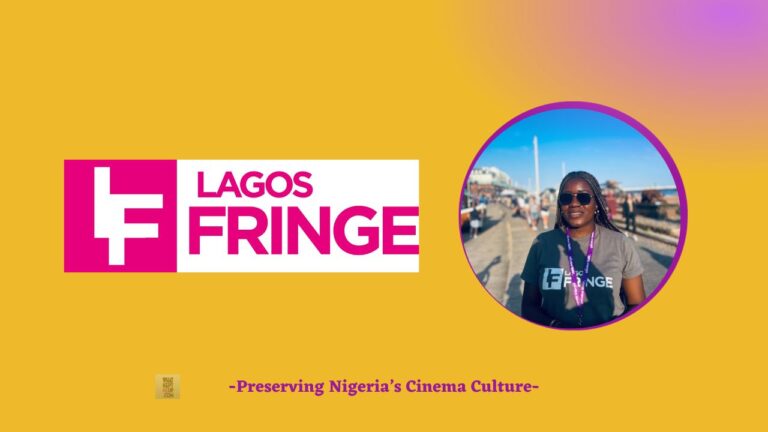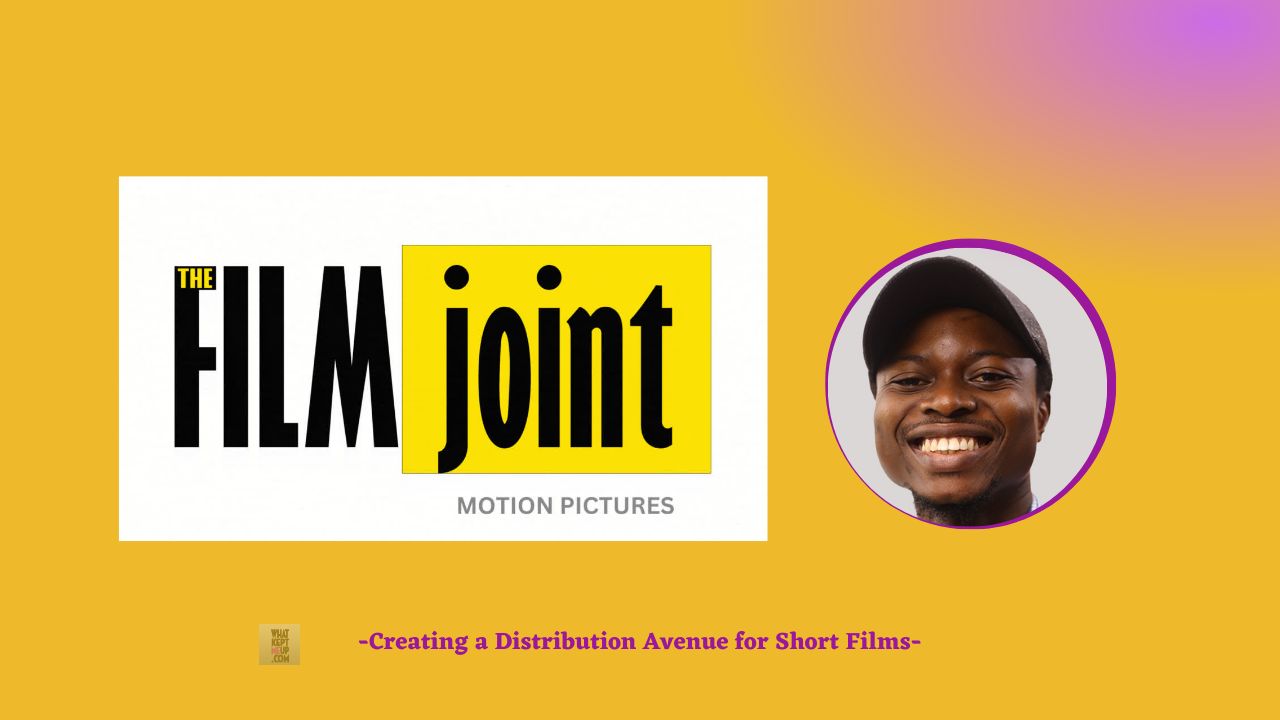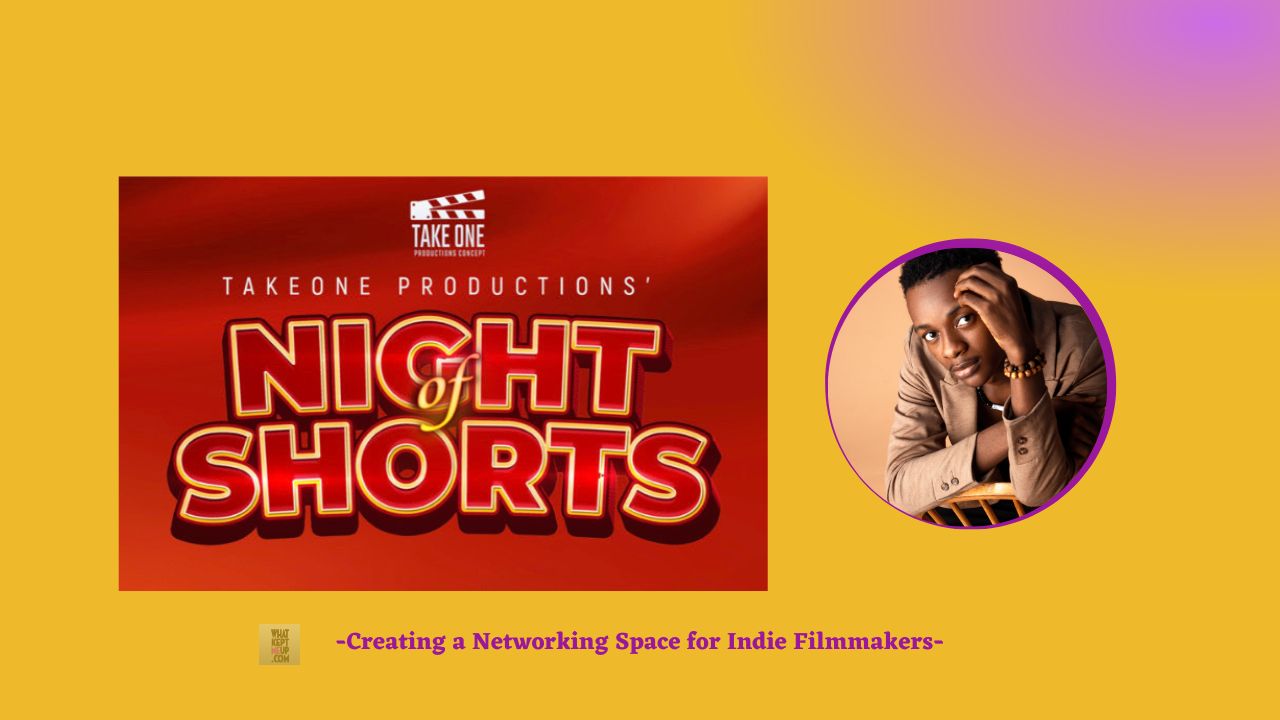Editor’s Notes: Beyond the commercial theatrical options, there are some film events that try to bring film lovers together to enjoy the communal exhibition of a movie. In this monthly series, titled The Tentmakers, we will interview the minds behind such collective viewing in Nigeria, in order to document their origin stories, their thoughts on the current state of cinema and other related details that capture their events. They are the tentmakers, boosting the theatrical spirit and cinema culture however they can under tight budget, low costs and periodic events.
The previous issues are available here.
Once in a while, a thought crosses my mind: Would cinemas still exist in the next century, or would streaming platforms have completely taken over? In order to prevent this extinction, the likes of Tope Sanni, the Chief Operating Officer at Pawstudios and Programs Director at Lagos Fringe, seek to preserve the cinema culture in Nigeria.
Lagos Fringe is a cinematic outing that gives artists, including independent filmmakers, the platform to showcase their works. In this interview with Sanni, she highlights what Lagos Fringe stands for while shedding light on ways the cinema culture in Nigeria can be preserved. Also, she reveals that “The Fringe” was inspired by the Edinburgh Fringe which was created as a platform for artists who couldn’t make it to the main Edingburgh Festival years ago.

What were the circumstances that led to the conception and birth of Lagos Fringe?
The Lagos Fringe was founded by Kenneth Uphopho and Brenda Fashugba. I was brought in as a participant Manager and Associate Producer. Five years later, and I am the Programs Director of Lagos Fringe.
Lagos Fringe was inspired by the desire to provide a platform for networking, showcasing, empowerment, and engagement for art makers to develop the connection with audiences and international guests/promoters.
What are the core goals of Lagos Fringe? How have you been able to carry these out for five years?
Lagos Fringe’s objectives include increased outreach activities and educational, professional people-to-people exchange opportunities that broaden mutual understanding between Nigerian artists and their international colleagues. We also create a more open and positive climate for discussion before and during the festival for the advancement of a more educated creative community.
Our platforms have given many young talents their first jobs and income. We have underscored significant capacity and motivation among artists to build a better life through empowerment and skill development opportunities.
What are the major challenges you have faced running Fringe Lagos for over 5 years?
Lagos Fringe Festival is mostly charitable in nature and has resulted (directly or indirectly) in the expansion of the creative communities in Nigeria with significant increases in opportunities for artists. Despite the effort we have made with the festival already, there is a tremendous unrealized ability to create additional empowerment programs for sustainable economics and entrepreneurship for artists in Nigeria.
What is it like bringing people together in a busy city like Lagos, especially now that streaming platforms are taking over?
There is always going to be a community and space for live festivals; nothing compares to it. The audience continues to visit the festival hub every year because of the dynamic programming of the festival. Right from the very first day of The Fringe, the hub brings together new entrants and industry professionals into the same space and this networking factor alone cannot be replicated anywhere else.
How would you describe the benefits that cinema culture has over streaming? Why should people gather to see a film when they could easily see it on their smartphones from the comfort of their homes?
Cinema culture offers a communal experience that streaming at home can’t replicate. The big screen, immersive sound, and darkened theater create a unique atmosphere that enhances the cinematic journey. Sharing reactions, laughter, and emotions with a live audience can amplify the impact of a film. Moreover, cinemas often feature special formats like IMAX or 3D that provide a richer visual experience. Going to the movies can be a social event, fostering discussions and bonding among friends or family. It’s a chance to disconnect from distractions at home and truly immerse oneself in the storytelling.
What role do gatherings play in the film as a cultural artform?
When you watch movies with other people, you also get the opportunity to discuss the film with them. This is quite vital to the ecosystem and even to developing communities. Films have historically been channels of changing archaic notions and bringing new information to the fore.
What is the process of getting funding for the projects and activities of Lagos Fringe?
We have always partnered with organizations who share similar objectives as the Fringe, some of whom include the British Council Nigeria, US Consulate General Lagos, The German Cultural Centre; Goethe Institut Nigeria, Freedom Park, Diageo (ORIJIN), The Nigerian-German Immigrants Resource & Jobs Centre, Brighton Fringe UK, and Pawstudios Africa, to deliver on these initiatives. This year, we aim to reach out and partner with even more institutions that are looking to or have developed initiatives for Nigerian creatives.
What can be done in order for the Nigerian audience to better appreciate cinema?
Affordability. In many states in the country, both cinemas and theatres are still seen as luxurious. This can be mitigated by making it affordable or creating affordable packages for cinema/theatre-loving Nigerians.
Also, fun and unique cinema experiences such as films/plays should be created in unconventional spaces, etc.
What roles do Nigerian filmmakers have to play in cinema culture? Why should filmmakers have cinematic experiences in mind even before making their films?
The audience experience is a huge part of live theatre and sometimes, I believe filmmakers forget this. The audience’s reaction from the beginning of a performance, whether live or prerecorded (TV and Films) should be the basis of every single production. And this has nothing to do with predictable endings. Many of us will continue to watch the Fast and Furious franchise, so long as it keeps getting made, even though we can almost predict the ending. The difference between productions like this and what we have in Nigeria sometimes is that with the former, there’s a consciousness of the audience that they hope will watch their movies. We must produce from the end goal that we wish to achieve. This goes for theatre, film, and TV.
What needs to be improved about Nollywood’s storytelling and filmmaking for an improved cinema experience?
In recent times, Nigerian filmmakers have done excellently with their technical aspects such as sound, visuals, costumes, etc. However, many Nigerians continue to lament about the quality of the stories being filmed. Our storytelling should be very authentic and realistic. An average Nigerian grew up on storytelling; it was and still continues to be the very first fundamental for us. Where are the stories about us, our history, and our current reality? But most importantly, how do we tell these stories without seeming to rush through the finale, which has been the bane of many films in recent times?
What was your last best cinema experience? Where did you see the film, and which film did you see?
One of the most memorable films I have ever seen is Banana Island Ghost. I loved the actors, the entire cinematography, and the storyline. It was simple and straightforward with a touch of the supernatural, which is quite Nigerian.
What’s one feature/thing you would change in our cinemas at the moment, for a better cinematic outing?
Better viewing theatres.
What is your selection process for the films that are screened every year at Lagos Fringe? What are some of the things you look out for?
A few months before the festival, there’s a call for submissions for short films, and a committee is tasked with screening the films. There is no cost to the filmmakers, as the Fringe is an open-access festival. Shortlisted filmmakers are contacted and invited to screen their films at the festival. We also encourage short conversation sessions with their audience where they get real-time feedback about their films. It is one of the most successful features at the Fringe and continues to expand each year.
Some of the things the committee looks out for include authenticity and a good plot. At the Fringe, we are not looking for “perfect”. As long as you have a film that you believe is worth watching, we give you the platform to showcase it to your audience. The Fringe is a developmental platform for creatives and it is quite humbling to receive acknowledgments and gratitude from filmmakers who have taken feedback from Lagos Fringe and its audience and have gone on to produce masterpieces.
What was the inspiration behind the name “Fringe”?
The Fringe was inspired by the Edinburgh Fringe years ago. There was the Edinburgh festival which a lot of artists traveled to be a part of, but they couldn’t get into the main festival. So, they started to produce work in the smaller venues around the main festival. This was how the Fringe model was born. Fast forward to decades later, other fringes have sprung up around the world because it is open-access. That is, it takes all kinds of work; multi-disciplinary arts, inter-disciplinary arts, and touring work as well, unlike the main festivals which featured shows that were specifically curated for the festivals.
The Lagos Fringe was developed to cater to the needs of our local artists here in Lagos and also to improve their livelihoods. Creatives showcase their work at least once every year.
You can find more information about Lagos Fringe on their Instagram page.
If you organize such film gatherings and would like to be considered to feature in this series, kindly drop a short message.
Share your thoughts in the comments section or join the conversation on Twitter.
Sign up: Keep track of upcoming films and TV shows with Google Calendar.





1 Comment
Pingback: The Tentmakers: Screen Out Loud Edition Featuring Founder Aderinsola Ajao (Bringing New Worlds to People Through Film) - What Kept Me Up